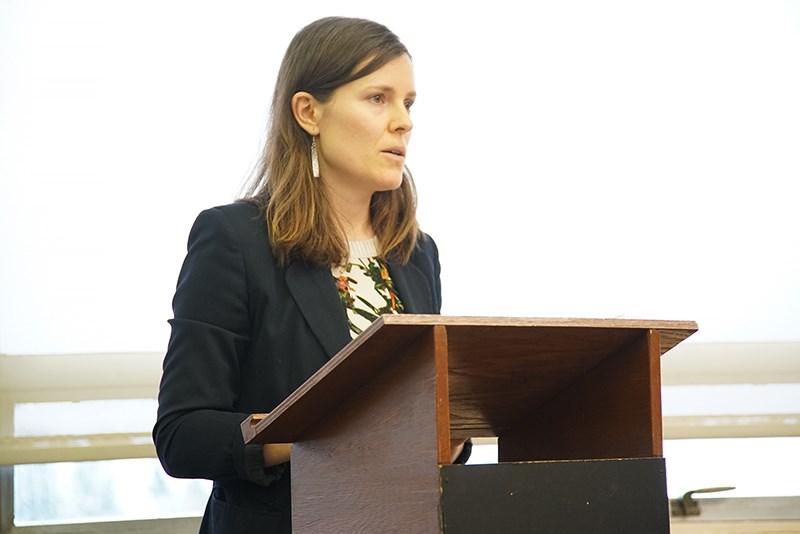City of Powell River Council has voted to allocate up to $48,000 for installation of four new electric vehicle charging stations.
At the February 6 city council meeting, councillor CaroleAnn Leishman, in introducing the motion, said the installation would provide for seven vehicle chargers, with three being dual chargers and one being a single charger to join the existing one at city hall.
“We are adding a few new locations and the sustainability planner applied for some funding so we have qualified for $14,000 in incentives; it’s a really great thing,” said Leishman. “There’s a huge increase in people buying electric vehicles and there are tourists coming to town with electric vehicles. We need to start building that infrastructure.”
Mayor Dave Formosa said the city is doing what it can to convert its vehicles to electric where possible.
At the February 4 committee of the whole meeting, city sustainability planner Ana Lukyanova told the committee she was bringing forward a request for funding for four new electric vehicle (EV) charging stations. Lukyanova told the committee the number of city-operated charging station uses went up from 905 in 2018 to 3,481 in 2019.
“That seems to be the trend over the years since 2016 when we installed our first charger,” said Lukyanova. “We have certainly seen rapid growth there.
“We are also seeing the need for EV charging for our own municipal fleet. Right now, we only have a single charger here at city hall, and we have no charging at the public works yard where most of the fleet is based. Looking at electrification going forward, which we are, we need to start thinking about charging there.”
Lukyanova said the city has been preapproved for a $14,000 incentive from BC Hydro for installation of these stations. Approved locations include city hall, the public works yard, Powell River Historical Museum and Dwight Hall.
Lukyanova said locations must be municipal buildings as the incentive program targets workplaces and the city applied as an employer. She said selections were also made on the basis of the city’s fleet moving forward, at the public works yard and city hall, where vehicles are based.
She said it is important to add stations to areas that do not have access to charging currently and places frequented by tourists, as well as where people tend to stop for extended periods of time.
“That’s why we chose Dwight Hall, which will be the first charger in the Townsite, and close to the commercial area there, and the museum near Willingdon Beach,” said Lukyanova.
To be eligible for the incentive, installation has to be completed by the end of March.
Formosa said he did not want to see a point where the city is subsidizing and paying electric bills for charge-ups of electric vehicles, to a point where it starts to be too expensive for the city.
Lukyanova said with a $2 an hour fee for using city charging stations, it is calculated that this covers the electricity costs and more. It covers the cost of installation over the lifetime of the station, so it is revenue neutral, she added.
Councillor George Doubt had concerns about the charging station at Dwight Hall. Lukyanova said it could be installed behind the hall, so it would not interfere with parking in front of the building.
“I just don’t want to interfere with the limited parking at Dwight Hall,” said Doubt.
Councillor Rob Southcott brought up the airport and Lukyanova said the location did not fit the criteria. She said there are no municipal vehicles located there. For people who fly, they would be leaving vehicles hooked up for too long.



